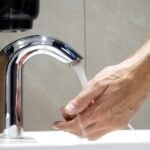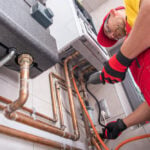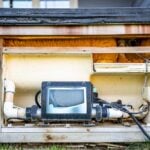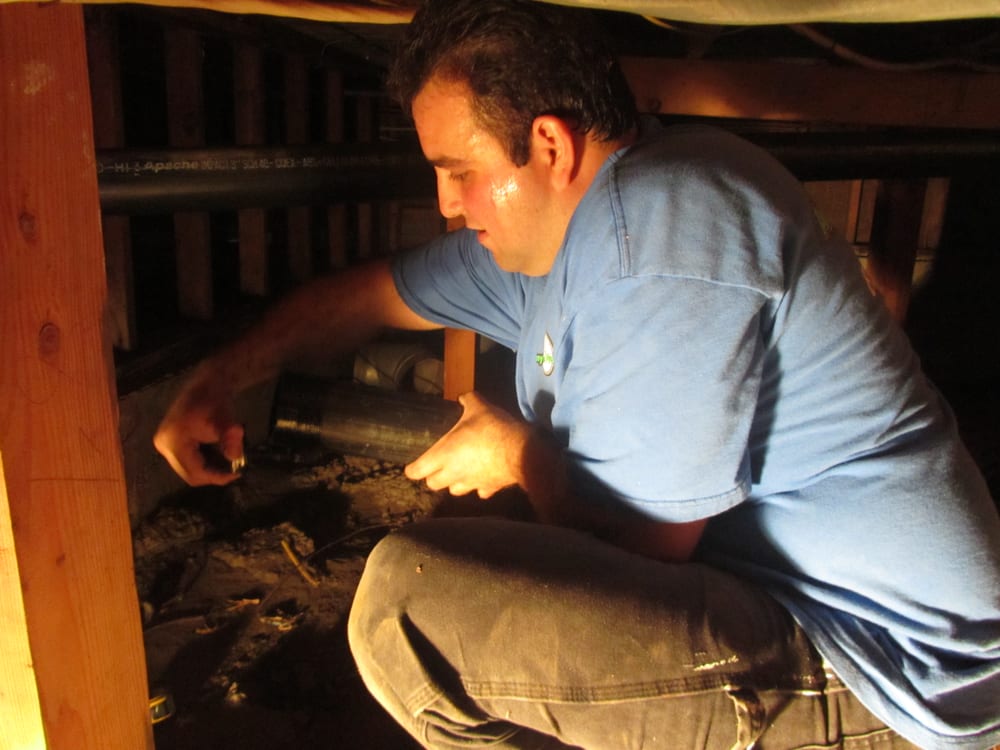
Pipe Corrosion – Causes and Most Effective Solutions
- By: Amer ZaghloulehUncategorizedComment: 0
Pipe corrosion is an issue most homeowners experience at some point. Corrosion can appear even in a properly functioning plumbing system, so it’s not always easy to spot. Even though it takes time to show, it can lead to damage to the surrounding elements, pipe leakage, and costly repairs.
The best way to fight pipe corrosion is to understand the underlying causes and treat them right from the start. In this article, we’ll share the biggest issues that can lead to pipe corrosion. We’ll also provide the best solutions to treat the problem once it arrives.
What Is Corrosion?
Corrosion is a natural process where atoms on a metal surface become oxidized. As a result, they damage the surface of the metal. Corrosion is a serious issue that can cause bridges to collapse, bathrooms to flood, or oil pipelines to break. The process is also a threat to safe radioactive waste disposal, it can cause electrical fires, and more.
Plumbing systems across the world are mostly made from metal pipes, meaning that they are prone to corrosion. But what is the cause of this process on the plumbing system in the first place?
The Causes of Pipe Corrosion
We’ll start by exploring the most common causes of pipe corrosion.
Water Pipe Corrosion – Oxygen and Water Temperature
Household water systems are filled with oxygenated water all the time. Oxygenated water is water into which the oxygen is dissolved, where almost a third is pure oxygen, while the rest is nitrogen. The latter is a non-corrosive element. Oxygen, however, is able to corrode metal through oxidation.
At this point, the metal will convert to rust (also known as oxide), so its structure will start to thin and weaken the more the rust progresses. There are three things that can happen once corrosion takes place.
1. Rust Will Accumulate Inside the Pipes
Rust is never smooth, so the nooks and crannies of its uneven surface can attract water impurities. This results in the buildup of these impurities on the pipes.
2. The Metal Thins
The next scenario that can happen is having the metal pipes thin. This makes them more vulnerable to breaking or falling apart.
3. Pinhole Crack Development
Finally, pinhole cracks can start to appear. There can also be pipe breakage if there’s a sudden shift of pressure on the pipes.
The issue with water and temperature is that the higher the water temperature, the faster the oxidation process. This is exactly why hot water lines often suffer from more serious corrosion issues than cold water ones. If you have corroded pipes under sink, this is most likely the primary reason for the problem.
Low pH
Water acidity is measured in pH (potential of hydrogen). The pH scale goes from zero, the most acidic environment, to 14, the most alkaline. Neutral pH is in between the two, which is 7.
Homeowners worried about corroded copper pipes should pay special attention to their water’s pH values.
Any instances of a pH of 8 or higher means the water is more alkaline, resulting in the formation of copper oxide films inside the pipes. This, in turn, slows or minimizes the corrosion process.
But if the pH of the water is neutral and going towards acidic, then the barrier dissolves in the water and leaves the pipes vulnerable to speedy corrosion. As a result, you can experience pinhole leaks across your plumbing system.
Water Velocity
In physics, water velocity is the measure of the speed of water that flows through closed pipes. Water can either be static when it’s shut down or have movement. When the water flows through a closed pipe system too fast, it can result in erosion corrosion.
This means that corrosion and erosion happen at the same time, and it is caused by any type of fast fluid flow on metal surfaces. So the higher the velocity, the bigger the risk of erosion corrosion of the installation parts and components. This is often the case in tubes, rotating machinery, and of course, pipes.
Chemical Drain Cleaners
Chemical drain cleaners are often recommended as the go-to solution for clogged drains in households. However, these cleaners can’t tell the difference between clogs and plumbing pipes. They eat away everything that gets in their way from the moment they are poured into the pipe. This means that any pipes, or solder that connects the pipes, as well as the fittings, can suffer in the process.
When left inside for too long, the chemical drain cleaner can create holes through the pipes and make it to other parts of the building where it can cause more damage. As for the pipes, it leaves them with pinhole leaks and potentially causes them to break in the long run.
There are drain cleaners that are specifically designed for a particular plumbing system. However, even those can cause damage to the pipes. So if you are looking for answers to the how to unclog copper pipes question, it’s best to check with professional plumbers instead of looking for DIY solutions.
Hard Water
Hard water is a type of water that naturally has a higher amount of minerals. There are entire neighborhoods or areas where water has these features. These are also places where most often, pipe corrosion happens due to this precise reason.
You can tell whether your water contains too many minerals by examining your tap. If there are mineral buildups, it could well be a sign of hard water. Also, if your hair and skin are dry after washing, it could be another sign that you have hard water.
Note: Dry hair and skin can be caused by an array of factors, and hard water is only one of them.
Bacteria
When bacteria invade the plumbing system, it can cause a microbiologically influenced corrosion, or MIC. This type of corrosion can cause a complete pipe to rot in just a few years. The most likely causes of bacterial corrosion are the iron and sulfate bacteria that naturally exist in the water.
Electricity
On rare occasions, faulty electrical grounding can cause electrochemical reactions to take place that in turn damage the pipes. The damage leads the way to corrosion and other pipe issues.
Misconceptions About Copper Pipes
Many people consider copper pipe corrosion to be impossible. But this couldn’t be farther from the truth. Copper has been some of the most commonly used materials for plumbing systems ever since the mid-twentieth century. However, this material type is also prone to corrosion under certain conditions.
Do Copper Pipes Rust?
Yes, copper pipe rust can be a real thing when specific conditions are met. This is true despite copper being one of the metals that doesn’t normally rust. The material naturally has very few traces of iron, which is the main material that causes rust when it comes in touch with water.
So what causes copper pipes to corrode?
You can expect oxygen reaction signs on the surface of copper pipes. In fact, all of the reasons mentioned above when it comes to causes of rust in other plumbing pipes can also be true for copper ones.
Galvanized Pipes Corrosion Causes
If you live in an outdated home, chances are you have galvanized steel pipes in your plumbing system. The zinc coating in these pipes can slow the corrosion for a while, but they’re certainly vulnerable to the process as time passes.
Here are some of the most common problems in galvanized pipes that lead to corrosion.
- Water mineral presence
- Electrolysis, or reaction from contact with other metals
- Hard water
How to Spot Corroded Pipes
Here’s a short overview of how you can spot corroded pipes in your household.
- Brown, rust-colored, or yellow water
- Bad water taste
- Bad water smell
- Water pressure fluctuations
- Leaky pipes
- Unusual sounds from the plumbing
The Most Effective Solutions for Corroded Pipes
Now that you know what causes corroded pipes and what the common symptoms of the issue are, you can probably tell whether or not the pipes in your plumbing system may be corroded.
If they are, here’s how you can address the issue.
First of all, it’s important to spot corrosion early on. This will allow you to take necessary measures to avoid damage.
Avoid Pipe Corrosion – Easy Steps You Can Take
Here’s what you can do to prevent pipe corrosion in the first place.
Watch the Water
Water is one of the main causes of pipe corrosion. That’s why you should take these precautions to prevent water-caused corrosion.
- Make sure to keep the pH water values between 6.5 and 8.5. You can neutralize the water to appropriate pH levels by using water filters.
- Monitor the oxygen levels in the water.
- Use a lower water temperature when possible.
Clean the Pipes Regularly
The second effective way to prevent corrosion is to clean your pipes regularly.
- Use biocides or inhibitors that aim for harmful bacteria inhibiting the pipes.
- Consider chemical water or other liquid treatment.
Protect the Metal
You can apply a special coating or protective linings to keep corrosion at bay when it comes to your plumbing or other surfaces. You can also apply protection to the joints, bolts, and beams.
Pay Attention to the Structure Stability
When there is movement in the plumbing system, it can cause the pipes to form openings. It is then easier for the corrosive material to set in and lead to corrosion.
You can use restraints such as U-bolts, clamps, or straps to control vibrations, jiggling, or bouncing of the pipes.
Invest in Metal-to-Metal Contact Prevention
A metal that comes in touch with another metal can pull electrons from its neighbor. As a result, the section becomes weakened and the whole structure is compromised.
You can prevent metal-to-metal contact by simply insulating the metal. For pipes, this could be insulators such as pipe shoes or wear pads. By installing those items, you will add a buffer between the pipes so the metal can stay durable for longer.
Dealing With Corroded Pipes
If you have already spotted corroded pipes in your plumbing system, the preventative methods above won’t be of much help. By the time you notice a corroded pipe, there’s very little you can do. The condition is certainly not something you should get used to or ignore.
How you should react depends on the severity of the rust. If you notice small rust stains on your plumbing fixture, you can try this simple DIY solution.
- Mix lemon juice and salt to form a paste.
- Apply the paste to the stain.
- Let the paste sit there for a few hours.
- Scrub the rust with a microfiber cloth or an old toothbrush.
- Clean the area with cold water.
Note that this solution won’t be effective if the rust has been on the fixture for years.
If the stain doesn’t go away or a large portion of the pipe is corroded, you don’t have many options except to call the pros.
Contact the Professionals
If one or more pipes in your plumbing system are severely corroded, don’t hesitate to contact professional plumbers. The experts will perform a thorough inspection of the pipe in question, as well as the rest of the system, to diagnose the severity of the issue.
If the pipe damage is too high, you may need to replace them with new ones. In many cases, however, you should be able to get away with professional cleaning. Either way, only an expert plumber can decide on the best solution for treating a corroded pipe.
Corroded Plumbing Pipes – Problem Solved
Corrosion takes years to appear on pipes; it’s not something that happens overnight. This is good news because it gives homeowners plenty of time to care for their plumbing system to avoid corrosion and similar damage.
This article aimed to provide the causes of corrosion to help you as a homeowner treat your plumbing system right from day one. Hopefully, these causes of pipe corrosion helped raise awareness of how important it is to ensure the perfect conditions for a plumbing system, as not even copper pipes are invincible.
Should you notice any signs of corrosion in your plumbing, contact the professionals over at Any Time Plumbing. They have licensed plumbers with years of experience in treating corroded pipes and can help diagnose or repair the damaged elements quickly and effectively, potentially saving you from costly repairs down the road.







